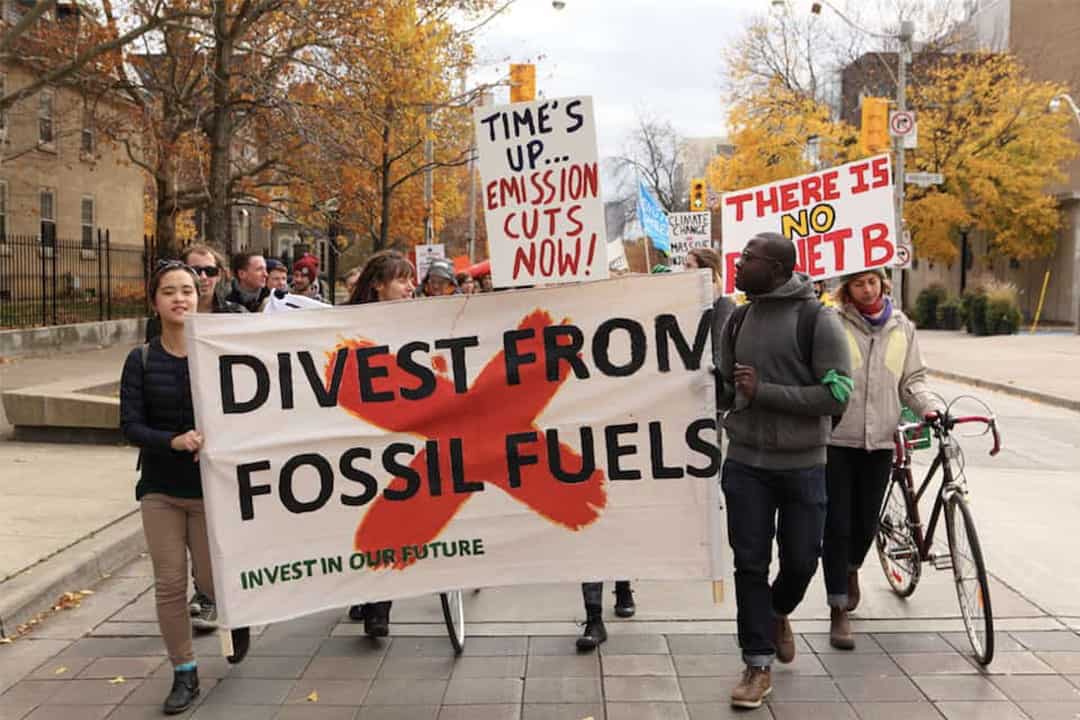On September 29, following nearly a decade of activism by students and alumni, Princeton University announced its commitment to divest and dissociate from 90 oil and gas companies and subsequently suspend research partnerships with the fossil fuel industry. The Board of Trustees collectively made this decision as part of the school’s commitment to achieving its net-zero endowment goals.
A set of recommendations established by a panel of faculty experts informed Princeton’s decision by formulating quantitative criteria for the school to determine the list of companies to separate from. The thorough examination via the criteria resulted in the dissociation from companies including but not limited to oil and gas giants like ExxonMobil, TotalEnergies, and Syncrude Canada.
All companies on the list are active in the tar sands and thermal coal sectors, which most significantly contribute to carbon emissions. Among the corporations, the university has had an especially long-lived association with ExxonMobil, which has funded approximately eight million dollars for climate and energy research since 2016 and had a former contract with Princeton worth five million dollars in 2015.
What does this mean for other universities?
Albeit later than activists expected, Princeton University’s commitment sets a precedent for other major universities and nods at the imminence of the Fossil Free Research movement. This movement advocates an end to fossil fuel money being used to fund climate-related research in universities.
With over 750 signatories from faculty and students across more than 150 institutions, the movement has been paving the way for publicly calling on universities to institute bans on conducting climate change and environmental research by accepting fossil fuel industry funding.
By stressing how academic integrity is undermined when universities research the climate crisis under fossil fuel industry funding, the Fossil Free Research movement has reached a milestone through Princeton University’s recent decision. The school’s capability to immediately create a new fund that supports energy research within the school also serves as a testament to how there are other options for funding than just the fossil fuel industry.
This, however, does not suffice.
The movement’s press release lauding the Ivy League university also maintains that the school “can and must do more” by ceasing any financial relationships with corporations like British Petroleum and Shell that are centred around fossil fuel extraction and production. Criticism also stems from how the university is still “vulnerable to the perverse influence of fossil fuel companies” due to remaining ties with aforementioned businesses.
What does this mean for U of T?
The discussion on fossil fuel industry funding and divestment brings us to U of T. After all, compared to all other Canadian universities, U of T ranks first in endowment. On October 27, 2021, President Meric Gertler announced that, from its four billion dollars in endowment funds, the University of Toronto Asset Management Corporation will divest from direct investments in fossil fuel corporations within the forthcoming year.
The university then promised that by 2030 it would dissociate from indirect investments, which are usually made through third-party fund managers. This is indubitably a crucial step forward from the 2016 decision by Gertler to strike down the equivalent fossil fuel divestment recommendations by an advisory committee.
However, it seems the devil is actually in the details. U of T’s ambitious declaration was not transparent enough to acknowledge that the majority of its fossil fuel investments are indirect or that each of the federated colleges of the school is not included in the divestment since they have individual investment portfolios. Taking the veiled elements as well as Princeton University’s recent precedent into consideration, the promised year 2030 also seems particularly further away.
While U of T may think it is working towards its pledge to become a “climate-positive” university, students want answers about the grey areas that the school refuses to colour in. U of T, don’t leave us disappointed.
Eleanor Park is a second-year student at Trinity College studying English and religion. She is The Varsity’s Associate Comment Editor.


